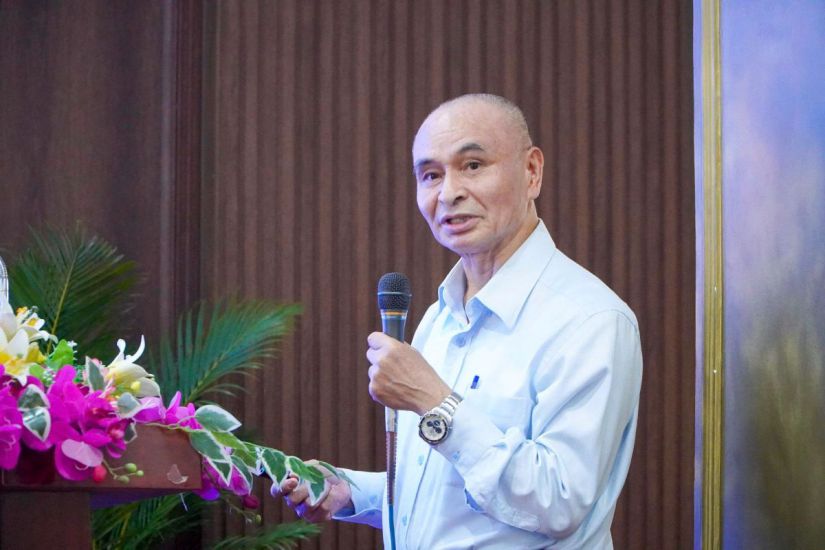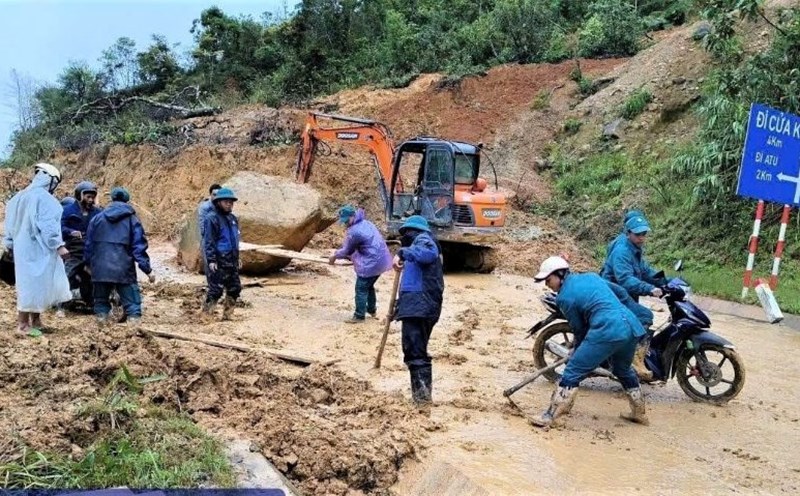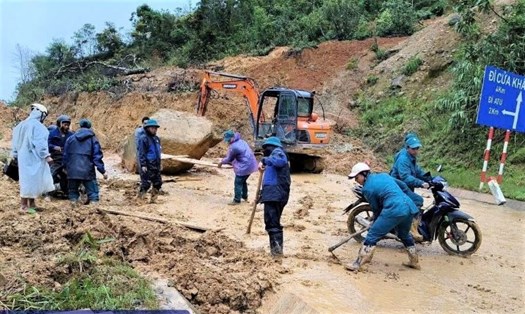Floods in the city cause huge socio-economic damage
Natural disasters and extreme weather are increasing in our country. The impact of storms No. 10 and 11 caused heavy rain, rising river water, causing many localities, especially northern urban areas such as Hanoi, Thai Nguyen, Ha Giang, Cao Bang to " biar into water". From that reality, there are opinions that urban areas need to accept "living with floods". However, according to experts, this is not feasible - or needs to be understood in the sense of "adjusting, living in harmony with nature, proactively responding".

On the sidelines of the Biodiversity and Nature-based Solutions for Northern Mountainous Development Workshop, speaking with Lao Dong reporter, Associate Professor, Dr. Vu Thanh Ca - senior lecturer at Hanoi University of Natural Resources and Environment - emphasized: "In cities, especially large cities, there is no such thing as living with floods".
According to Mr. Ca, urban centers must be absolutely protected, not allowing water to overflow into the inner city area. "Floods in the city caused huge socio-economic damage: Disrupted production, affected investment, disrupted people's lives and damaged the urban image," said Mr. Ca.
With key cities in politics, economy and society like Hanoi, we cannot accept this situation even more. The investment cost for flood prevention plans is much cheaper than the damage caused by flooding" - Associate Professor, Dr. Vu Thanh Ca emphasized.
Mr. Ca proposed that in the long term, it is necessary to upgrade the dike system, renovate drainage ditches, and build a pumping system to connect the inner city and drainage areas.
The North is not fully prepared for extreme weather
From another perspective, Prof. Dr. Tran Thi Thu Ha - Director of the Institute of Forestry and Sustainable Development, Thai Nguyen University of Agriculture and Forestry - said that "living with floods" does not mean giving up or accepting flooding, but is proactively adapting, minimizing risks.
Instead of just fighting, we need to accept the natural reality and find ways to reduce the impact. Climate change and natural disasters are global issues that cannot be completely combated, but must be adapted to minimize damage, said Ms. Ha.
According to Ms. Ha, the North has not been fully prepared for extreme weather conditions, while the Central region - which is familiar with storms and floods - has better experience and readiness. When the storm arrived, the people of the Central region had a response plan, so the damage was significantly reduced. That is truly "living with floods", Ms. Ha shared.
In particular, Prof. Dr. Tran Thi Thu Ha noted that current urban planning needs to be reviewed. Previously, despite storms and floods, the population density was low, and the natural flow was not obstructed. Currently, the urbanization and concreting speed is too fast, making it impossible for water to seep into the ground, causing local flooding. We must respect the natural laws in planning and construction, said Ms. Ha.
Prof. Dr. Tran Thi Thu Ha said: "We are not only talking about climate conservation and adaptation, but are living with it - amidst the very real evidence of the harmful effects of nature and humans".
Prof. Dr. Ha said that in the context of increasingly severe natural disasters, the connection between science, policy and community action is more urgent than ever. Resolution No. 57 of the Politburo has identified science, technology, innovation and digital transformation as one of the three strategic breakthroughs of the country.
The spirit of this Resolution opens up great opportunities for digital transformation to be applied in forest management, biodiversity monitoring, natural disaster forecasting and ecosystem recovery. Along with that, the Government has approved the National Strategy on Biodiversity to 2030, with a vision to 2050 and affirmed its commitment to net zero emissions by 2050.
According to Ms. Ha, in this policy framework, nature conservation and community development in mountainous areas are identified as pillars of national ecological transformation.











